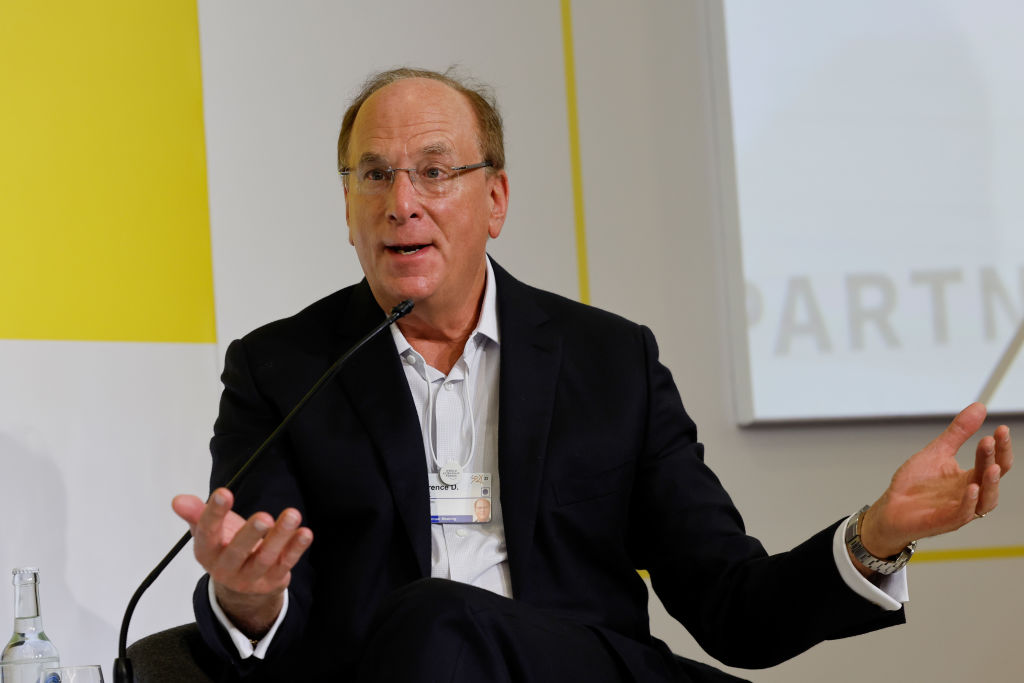
Larry Fink doesn’t want to use the term ESG anymore, and the longtime BlackRock CEO said he is “ashamed” to have been drawn into the political debate over the term. At a quick glance, those comments from Fink made at Aspen Ideas on June 25 might sound like a moment for right wing culture warriors to celebrate. After all, Fink is one of the world’s most influential investors and his very public embrace of ESG in 2018 helped make the term mainstream.
But if you only read the headlines you would be missing the point. In his comments, Fink went on to say that he still believes in “conscientious capitalism” and that instead of talking in vague terms about “ESG” he now prefers to talk “a lot about decarbonization, we talk a lot about governance … or social issues, if that’s something we need to address.” In other words, Fink isn’t changing the firm’s practices, he’s just changing the way he talks about them.
Fink is not alone. As the backlash to ESG has grown over the last year, business leaders have changed the way they talk about their climate work to tiptoe around the political faultlines. Some have used different language that avoids phrases like ESG; others have avoided even talking about it in public venues. But in operational plans and corporate-strategy sessions investors and business executives in most industries say they haven’t backtracked at all, particularly on environment- and climate-related issues.
You might call this an inflection point. Companies and investors are increasingly building climate into their strategies; they’re also rethinking how and whether they talk about it. “RIP to ESG,” Anne Simpson, global head of sustainability at the asset manager Franklin Templeton, told me earlier this year. “Not because we think this is an end to this, but because it’s a beginning.”
If this is indeed a beginning, what comes next?
It’s clear that climate change and the energy transition are irreversibly remaking sectors. An EY survey of C-suite leaders at large U.S. companies last year found that 82% had set emissions-reduction goals and an even greater percentage said that they view sustainability as important to their business. And that’s reflected in the trillions of dollars companies have committed to adjust their operations to thrive in a low-carbon world, from the EV manufacturing facilities popping up around the world to the billions flowing into clean hydrogen projects.
What’s unknown is what fits and starts will occur along the way. The backtracking from climate commitments in the oil-and-gas industry as fossil fuel prices have risen is a prime example. And, surely, many companies will avoid thinking about decarbonization until they are forced to do so. But the reality is that stakeholders—governments, investors, consumers, and employees—are increasingly putting that pressure on companies.
Despite all this, the ESG backlash does matter, and businesses are terrified about the consequences of speaking out. BlackRock, to point to an obvious example, has lost billions in business from the states of Texas and Florida after being targeted by conservative politicians in those states.
For that reason, companies increasingly seem inclined to follow a version of Fink’s approach: pursue climate efforts and explain them in clear language as a business objective. “Talk about the work that is happening,” Whitney Dailey, executive vice president at Allison+Partners, which advises on ESG communications, said during a panel I spoke on earlier this week. “It is about being specific and exacting in our communication, understanding our stakeholders, what they care about, what they’re going to want to hear from us, and, again, tying it back to the business.”
More Must-Reads from TIME
- Cybersecurity Experts Are Sounding the Alarm on DOGE
- Meet the 2025 Women of the Year
- The Harsh Truth About Disability Inclusion
- Why Do More Young Adults Have Cancer?
- Colman Domingo Leads With Radical Love
- How to Get Better at Doing Things Alone
- Michelle Zauner Stares Down the Darkness
Write to Justin Worland at justin.worland@time.com